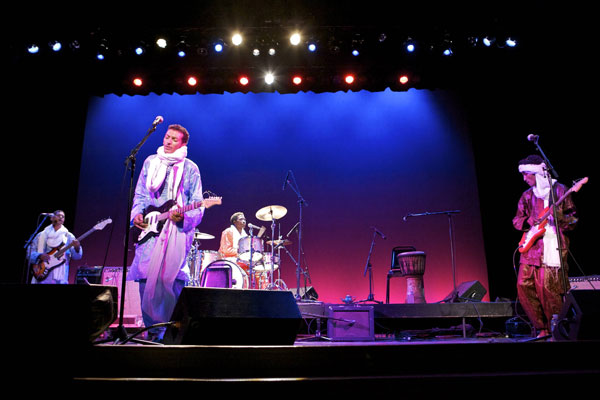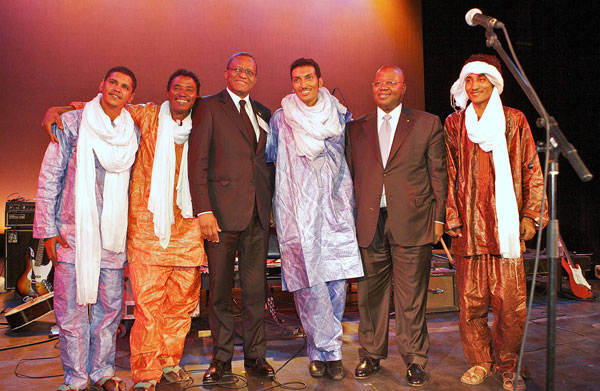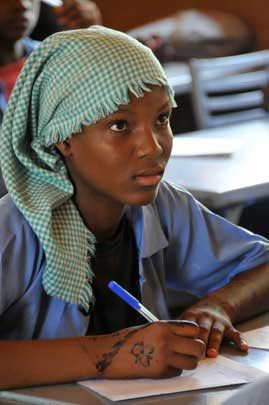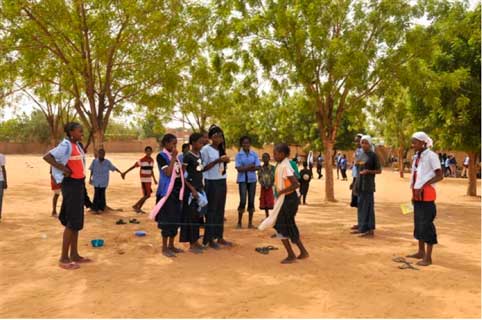Policy changes are paying off for the environment.
This is a note originally sent by Jamie Thomson to the Niger III group. It is reproduced here to spread the good news about what’s happening in the struggle against desertification in Niger.
It’s a slightly long but very inspiring read.
It is nice to know that, as a result of a policy change, a reform of the forestry code that was in force in the mid-60s in Niger, which removed the institutional incentives, the old rules created for Mafia-like ‘rent seeking’ on the part of Nigerien foresters, the Sahara is having difficulty spreading in that country. The same policy problem was formerly worse in Mali, where the Mafia paragraph in the forestry code stipulated that 10% of all fines collected at the local level had to be pushed up the Eaux et Forêts hierarchy. Everyone knew the system was working properly if the Directeur National could annually afford a new Mercedes sedan (on the backs of Malian farmers). And the same system provided him an easy way to evaluate the performance of foresters in field-level cantonnements. That policy seems over and done with.
What difference has this made on the ground? There is satellite image evidence for Niger, subsequently verified by a couple of Sahel-seasoned geographers (Dutch [Chris Reij] and American [L. Gray Tappan]) that Nigeriens have ‘produced’ over the last two decades some twenty million new trees. Basically, they have stopped hoeing up Acadia albida (gawo) seedlings when they cultivate their fields, because now they know that they can cut gawo, trim them, do what they want with them when they want and no forester can extract a bribe from them for having committed what is no longer a crime. Free-ranging goats devour the nutritious gawo seed pods when they drop off the trees in the fall, thin out the tough seed coverings with acids in their G.I. tracts while recycling the nutrients in the seed pods, and then stochastically excrete them (enveloped in natural fertilizer) all over the Nigerien Sahel. The resulting natural regeneration isn’t all lined up, but scattered-sited trees, if there are enough of them, function just as well as straight line windbreaks in braking the otherwise devastating impact of early rainy season winds on tender young millet plants.
All that vegetation on the sandy soils of the southern, agricultural section of the country has certainly slowed, if not stabilized or even reversed, the spread of the Sahara. Eric Eckholm’s piece in the New York Times, forty years ago, reporting what he claimed was incontrovertible evidence that the Sahara was inexorably moving south at a rate of 35 miles a year should have meant that Lagos, by now, would lie on the southern edge of the desert. Not so. That same Acacia albida species, which drops its nutrient-laden leaves at the beginning of the summer rainy season (green manure), also provides the under sown young millet plants latticed shade (think American outdoor nurseries) during periodic short intra-seasonal droughts and so buffers the millet plants sown on all those now re-stabilized dunes from the impact of short water supplies. In addition those trees fix nitrogen, so that the gawo/millet combination turns out to be pretty powerful in terms of food production.
Fulani pastoralists, moreover, are pretty happy because they now have farmers in the agricultural belt who want them to climb up and lop off gawo branches during the dry season. Those fallen limbs provide one of the animals’ rare sources of green vitamins during the dry season, as well as construction materials and firewood to keep the tuwo fires burning. Since the forestry code reform, when a Fulani asks a farmer if he can lop some gawo limbs the answer isn’t invariably ‘No!’ as farmers no longer have to worry about foresters extracting bribes. So farmer/herder interpersonal relationships have taken a turn for the better. If the Fulani stay around for a time, as their animals clean up the crop residues on a farmer’s field, the farmer benefits from the animals’ manure. Herder/farmer conflicts have receded somewhat, since the gawo trees are no longer a bone of contention between the two groups, but a win-win situation. None of this means, of course, that lots of Nigeriens aren’t hungry part the year. But they’re not all constantly starving to death either.
Sahelians are a resilient people. Bad drought/poor harvest in Tahoua (or Tanout, or Zinder, Gouré, Tessaoua, Maradi, Filingue, Mayahi, Matameye, Magaria)? Better travel to Nigeria or some other coastal country for the dry season, to economize on consuming whatever millet remains at home and maybe put aside a little money for taxes. No point moaning; better get moving. In the face of bad droughts, Sahelians haven’t reacted, however, just by fleeing. For quite a while now they have been seriously reshaping their local ecologies. Huge swaths of northern Burkina Faso (Yatenga), much of the area around Tahoua, southern Mali in general and lots of other places have been transformed by the installation of soil and water conservation works. These were built by farmers and their wives (extensive sweat equity). Outside assistance was pretty much limited to training farmers in the use of the water level, which enables them to build conservation works on the contour, reducing construction and maintenance challenges. What were formerly heavily eroded slopes are now step-terraced surfaces, where water doesn’t run off but seeps into the soil, providing moisture and fertilizer to the millet and other field crops now produced in those places. And that water infiltration also recharges underlying ground water tables, so that there is water to bail throughout the dry season in wells that humans depend on for survival. Local streams continue to run for a while after the end of the rains, allowing domestic animals to get their own water for a longer time, without humans having to bail every drop for them.
None of the above means that parts of Niger, and other parts of the Sahel, have suddenly been converted into little Edens. But the experience of people in those places over the last few decades has simply not been one long, unmitigated disaster. There are ups and downs, as in most places. Niger’s population has nearly quadrupled, from about 4,000,000 when we served in the Peace Corps in the 1960s to about 15.3 million now. There must be a limit, but a larger population means more people available to reshape physical environments, more money to create effective domestic demand for foodstuffs and firewood. Global warming, on the other hand, is projected to create some pretty disastrous consequences.
In that vein, Médecins Sans Frontières, Oxfam and a number of other organizations do contribute services that may well not be available locally and thus deserve support if you’re so inclined. But lots of Sahelians demonstrate a pretty impressive capacity to convert useful external technical inputs into tools and techniques that allow them to produce enduring changes. And in-country policy shifts can sometimes prove pretty useful as well.
Jamie Thomson in Bamako
Jamie Thomson served in Niger from 1964-66. He has just returned from a consulting trip to Mali.
 Bombino at The Music Hall in Portsmouth, NH
Bombino at The Music Hall in Portsmouth, NH Bombino and Group with Ambassadors
Bombino and Group with Ambassadors
